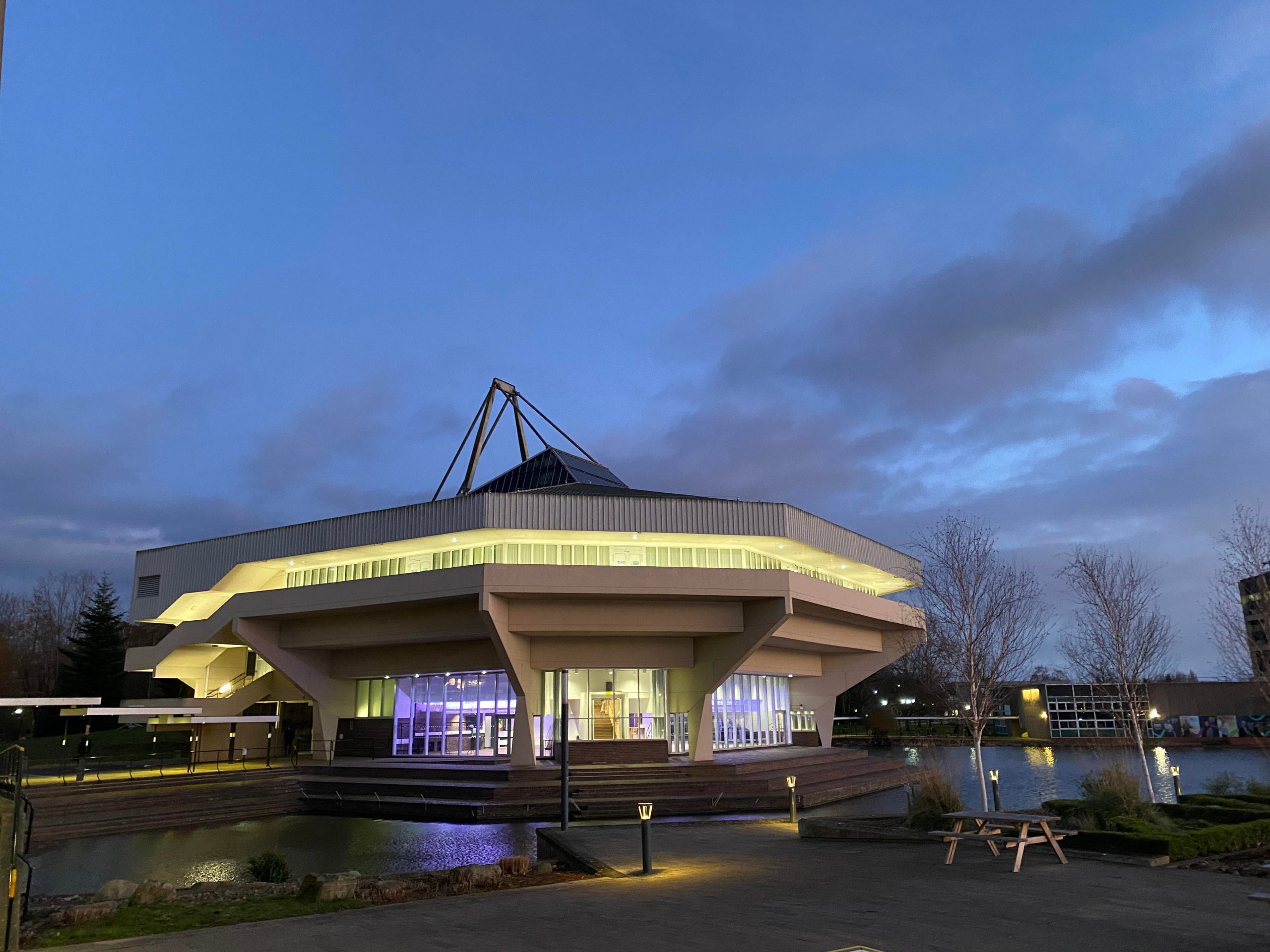In attendance for the zoom meeting were President Vitalina Shevchenko, Secretary Olena Kurnytska, and
Treasurer Ann Hrynyshyn, all working incredibly hard over the past few months to get the society up and running.
The society’s conception, they describe, was organic. After individually researching whether any such society existed already, they began to build a “little community of Ukrainians here at the University of York.”
Vitalina describes their surprise at discovering “there were many more Ukrainians than thought.” She highlighted the natural curiosity that had developed across campus, and the world, regarding Ukraine.
“We understood that quite a lot of people are interested in Ukraine, our culture, and the Russian invasion – what is going on right now and how they can help.”
As such the society hopes to exist as a place of welcome, security, and compassion; for Ukrainians and for anyone who wishes to learn about the nation which has captured the globe’s attention. Ann noted the aim of establishing a social platform for culture and language, and guiding people
on how they can help.
Vitalina continues: “We want to be that welcoming space for anyone who is interested in our country, in our heritage, traditions, language. We want to provide a secure space for anyone who wants to help Ukrainians or Ukraine.”
The society was launched in January, with an event attended by YUSU Sabbatical officers Rohan, Pierrick and Hannah, university staff, Deputy Vice-Chancellor Professor Saul Tendler, and Vice Chancellor Charlie Jeffery and his wife Elka. The society described feeling great appreciation for the university’s show of solidarity and support. The event also allowed the group to meet other Ukrainian students who have an identical desire “to talk, to share, to even sometimes scream about what is going on in our country.”
Olena thanked a range of staff who have been instrumental in supporting the society throughout its formation, namely the University’s communications and partnerships department which has orchestrated contact with Karazin Kharkiv National University in Ukraine, YUSU, and Dr Shane O’Rouke from the department of History.
Speaking next about their future as a society, the group celebrated their opening meeting on February 9th – a time for introductions, quizzes and learning basic Ukrainian, taught by Professor Maryna Kapas-Romaniuk.
Following this exciting opening, the society has a range of events planned for the anniversary of Russia’s invasion of Ukraine, which approaches on February 24th. A Yustart campaign hopes to raise 3000 pounds for the operation of the society, with an eventual goal of being able to send money to help Ukrainian charities and organisations on the ground. With the fundraiser ending on March 3rd, the group has already been greatly moved by the generosity and support of alumni, students, and even friends back home in Ukraine.
“It’s amazing and fantastic because (people in Ukraine) definitely shouldn’t have done that,” Vitalina laughs.
Olena furthers: “It’s fantastic to find out that the sentiment is still there, and the people remember the war…the war is not only not over, it’s also getting worse and getting more intense.”
The anniversary weekend itself will see a panel discussion regarding the future of Ukraine and Russia. Many academics are hoping to attend in person or online, including Ukraine’s youth delegate to the United Nations and war correspondent Clarissa Ward.
The event will be free and open to anyone who wants to know more about the ongoing conflict.
Later in the year, the group hopes to set up an exhibition showcasing photographs and art to tell the stories of life in Ukraine since Russia’s initial invasion in 2014.
Vitalina believes this will help visitors recognise the people behind the numbers, “There are real people. There are real families, and there are their stories. And we want to share those stories.”
As the anniversary of Russia’s 2022 invasion approaches on February 24th, Vision asked the Ukrainian society if they had any particular message to share about the conflict.
Olena, a politics and international relations student, has been disheartened by blunt predictions about longevity of war offered by many academics and students in her classes.
“It gets mentioned so much and is a part of so many areas of life so for us to listen to that it’s as if watching an operation where a patient is someone you know. It’s heartbreaking.”
She also mentions the inconsiderate discourse of the conflict as simply war between NATO and Russia, with Ukraine as a battleground. Such ideas narrow the impact of Ukrainian efforts and miss the long-standing ideals of sovereignty and democracy being defended on European soil.
“We’re fighting for freedom and security in Europe. We are currently at the stage of reorganisation of the entire global order.”
“It’s not just about Ukraine. It is. It is about border security, conflict resolution, and prevention. Because Ukraine is not the first country to have such an atrocity and a war of this scale. And it’s certainly not the last country.”
“We want to promote thinking on a bigger scale and, kind of scaling it up, not just for Ukraine, and our culture, who we are, but also for everyone else in the university. We think it’s important for young academics to know that.”
Vitalina’s message was a short and powerful one: “People should not forget that life goes on.”
Wrapping up our talk, the Ukrainian Society were asked to describe their favourite things about Ukraine that people may not already know.
Olena laughed, “It’s a hard question because we love so many things.”
“The faith that people have, the ability to cope through humour… people keep believing religiously in victory. It is an extraordinary atmosphere.”
Vitalina concluded: “Each and every Ukrainian became a family member. The unity of the same goal, the same heritage, the same language, and the same pain unfortunately. Everything. It made us one big family, and we have never been that united.”
